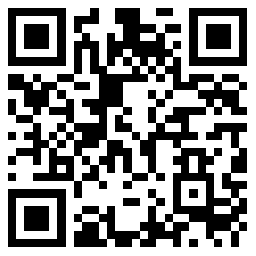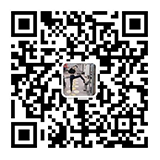雷哥考研 > 题库 > 2020年管理类联考英语二考纲配套试卷(二) > 阅读理解B
Let’s face it— we all have a career-limiting habit. Whether it’s weak interpersonal skills, a tendency to procrastinate, or good-but-not-great technical prowess, one of the biggest impediments to our upward mobility is a habit we struggle to change.
A few years back, my colleagues and I studied 5,000 people who had attempted to change a stubborn career-limiting habit. Fewer than 10% succeeded at creating deep and lasting change. Here are some common tactics for tricking yourself into changing:
41. _______________________
We are especially naive about the degree to which our physical surroundings shape our choices. For example, what you eat is shaped far more by what you see than by what you search for. A glittering bowl of Lindt chocolate truffles on a colleague’s desk initiates an inexorable cognitive process that ends only when you succumb to its seduction. Seeing is eating.
You can use this fact to trick yourself into changing by manipulating distance: put bad things far away and bring good things close, and your behavior will change. For example, if you are trying to overcome procrastination, don’t sit in places that offer attractive distractions. If you work in an open office environment, take your laptop to a huddle room when you need an hour of focused attention. If you want to read more technical journals, put them on your homepage in place of sale notifications or news feeds.
42. _____________________
There’s a Mexican saying: “Show me who you’re with, and I’ll tell you who you are.” You don’t get to vote on whether the people you associate with shape you. They determine the way you think, feel, and dress, and they influence what you purchase, eat, study, hate, and even how you vote. So spend less time with people who reinforce a bad behavior, and spend more time with people who support a good behavior. For example, if you want to cultivate a more positive attitude about big changes in your company, lunch more often with those who are leading the charge and less often with those who are forming the opposition.
43. _______________________
Human beings have a default bias: if a box is checked on a web page, we are likely to leave it checked. If our driver’s license renewal requires us to opt out of organ donation rather than opt in, many more of us donate our organs. So, program defaults into your life. Don’t simply say, “I want to practice my presentation before the quarterly review.” Instead, schedule practice time on your calendar. You are far more likely to spend the hour rehearsing if you make it the default plan.
44. _____________________
We tend to think our behavioral lapses are most often due to a lack of will rather than a lack of skill. This is not true. We are less motivated when we feel less competent. When attempting to change your behavior, don’t simply try to psyche yourself into changing; rather, coach yourself into it. Create structured practice opportunities to increase your competence and your motivation will follow suit. For example, one executive who wanted to improve her interpersonal skills purchased a book on making small talk. Each week, she identified one technique and situations where she could practice it. Practice episodes took just a few minutes. It was somewhat uncomfortable but felt less so since she viewed it as a kind of interpersonal calisthenics. Once she practiced the skill multiple times, it began to feel comfortable and reliable. Make yourself feel differently about gaining new behaviors by seeing it as a process of systematic skill acquisition.
45. ______________________
It is surprisingly easy to manipulate yourself by simply framing choices differently. Others do it to you all the time, presenting soda pop as freedom or a new car as a path to passionate liaisons. It’s lame — but effective. And we can do it to ourselves as well. For example, simply tweaking the words you use to represent a decision profoundly changes how you feel. Research by Vanessa Patrick shows that when faced with temptation, you’re far better at resisting it if you say “I don’t do that” than if you say “I can’t do that.” Successful changers in our study used phrases that bolstered their motivation by framing the decision in a way that connected to personal values or goals.
A few years back, my colleagues and I studied 5,000 people who had attempted to change a stubborn career-limiting habit. Fewer than 10% succeeded at creating deep and lasting change. Here are some common tactics for tricking yourself into changing:
41. _______________________
We are especially naive about the degree to which our physical surroundings shape our choices. For example, what you eat is shaped far more by what you see than by what you search for. A glittering bowl of Lindt chocolate truffles on a colleague’s desk initiates an inexorable cognitive process that ends only when you succumb to its seduction. Seeing is eating.
You can use this fact to trick yourself into changing by manipulating distance: put bad things far away and bring good things close, and your behavior will change. For example, if you are trying to overcome procrastination, don’t sit in places that offer attractive distractions. If you work in an open office environment, take your laptop to a huddle room when you need an hour of focused attention. If you want to read more technical journals, put them on your homepage in place of sale notifications or news feeds.
42. _____________________
There’s a Mexican saying: “Show me who you’re with, and I’ll tell you who you are.” You don’t get to vote on whether the people you associate with shape you. They determine the way you think, feel, and dress, and they influence what you purchase, eat, study, hate, and even how you vote. So spend less time with people who reinforce a bad behavior, and spend more time with people who support a good behavior. For example, if you want to cultivate a more positive attitude about big changes in your company, lunch more often with those who are leading the charge and less often with those who are forming the opposition.
43. _______________________
Human beings have a default bias: if a box is checked on a web page, we are likely to leave it checked. If our driver’s license renewal requires us to opt out of organ donation rather than opt in, many more of us donate our organs. So, program defaults into your life. Don’t simply say, “I want to practice my presentation before the quarterly review.” Instead, schedule practice time on your calendar. You are far more likely to spend the hour rehearsing if you make it the default plan.
44. _____________________
We tend to think our behavioral lapses are most often due to a lack of will rather than a lack of skill. This is not true. We are less motivated when we feel less competent. When attempting to change your behavior, don’t simply try to psyche yourself into changing; rather, coach yourself into it. Create structured practice opportunities to increase your competence and your motivation will follow suit. For example, one executive who wanted to improve her interpersonal skills purchased a book on making small talk. Each week, she identified one technique and situations where she could practice it. Practice episodes took just a few minutes. It was somewhat uncomfortable but felt less so since she viewed it as a kind of interpersonal calisthenics. Once she practiced the skill multiple times, it began to feel comfortable and reliable. Make yourself feel differently about gaining new behaviors by seeing it as a process of systematic skill acquisition.
45. ______________________
It is surprisingly easy to manipulate yourself by simply framing choices differently. Others do it to you all the time, presenting soda pop as freedom or a new car as a path to passionate liaisons. It’s lame — but effective. And we can do it to ourselves as well. For example, simply tweaking the words you use to represent a decision profoundly changes how you feel. Research by Vanessa Patrick shows that when faced with temptation, you’re far better at resisting it if you say “I don’t do that” than if you say “I can’t do that.” Successful changers in our study used phrases that bolstered their motivation by framing the decision in a way that connected to personal values or goals.
42.
- 雷哥网解析
- 网友解析
根据该段首句中的who you’re with以及第二句中the people you associate with可知,该段重点是谈论你结交的人,因此选项E为正确答案。
题目讨论 (0条评论)

提交
















 预约成功!
预约成功!
















